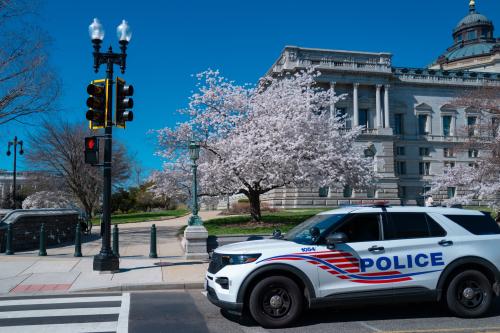

10:00 am EST - 11:30 am EST
Past Event
At the start of Joe Biden’s presidency, the United States was facing several simultaneous crises — a raging COVID-19 pandemic, a cratering economy, and national unrest over police violence and systemic racism — all of which have disproportionately affected Black communities. One year later, 6.4 million jobs have been created, dropping the unemployment rate from 6.2% to 3.9%: a new record. 2021 was the greatest jobs growth year in modern American history. However, COVID-19 continues to upend schools, industry, and American lives. And structural inequities continue to result in fewer opportunities for social and economic mobility for communities of color, and a disproportionate recovery for Black Americans.
On February 8, as part of our celebration of Black History Month, the Brookings Institution hosted a webinar focusing on an inclusive public policy agenda for Black Americans. Brookings scholars assessed the president’s progress on his campaign promises and discussed topics such as access to quality health care, housing, jobs, and education, police and criminal justice reform, reparations for Black Americans, and voting rights.
Viewers submitted questions for speakers by emailing [email protected] or via Twitter at @BrookingsGov by using #BlackHistoryMonth.
Panelist


Gabriel R. Sanchez, Edward D. Vargas, Daniel F. López-Cevallos, Carmen R. Valdez, Ana Luisa Oaxaca Carrasco
June 24, 2025

Hanna Love, Hannah Stephens
April 23, 2025

Stacy Hawkins, Andre M. Perry, Robert Puentes
April 23, 2025